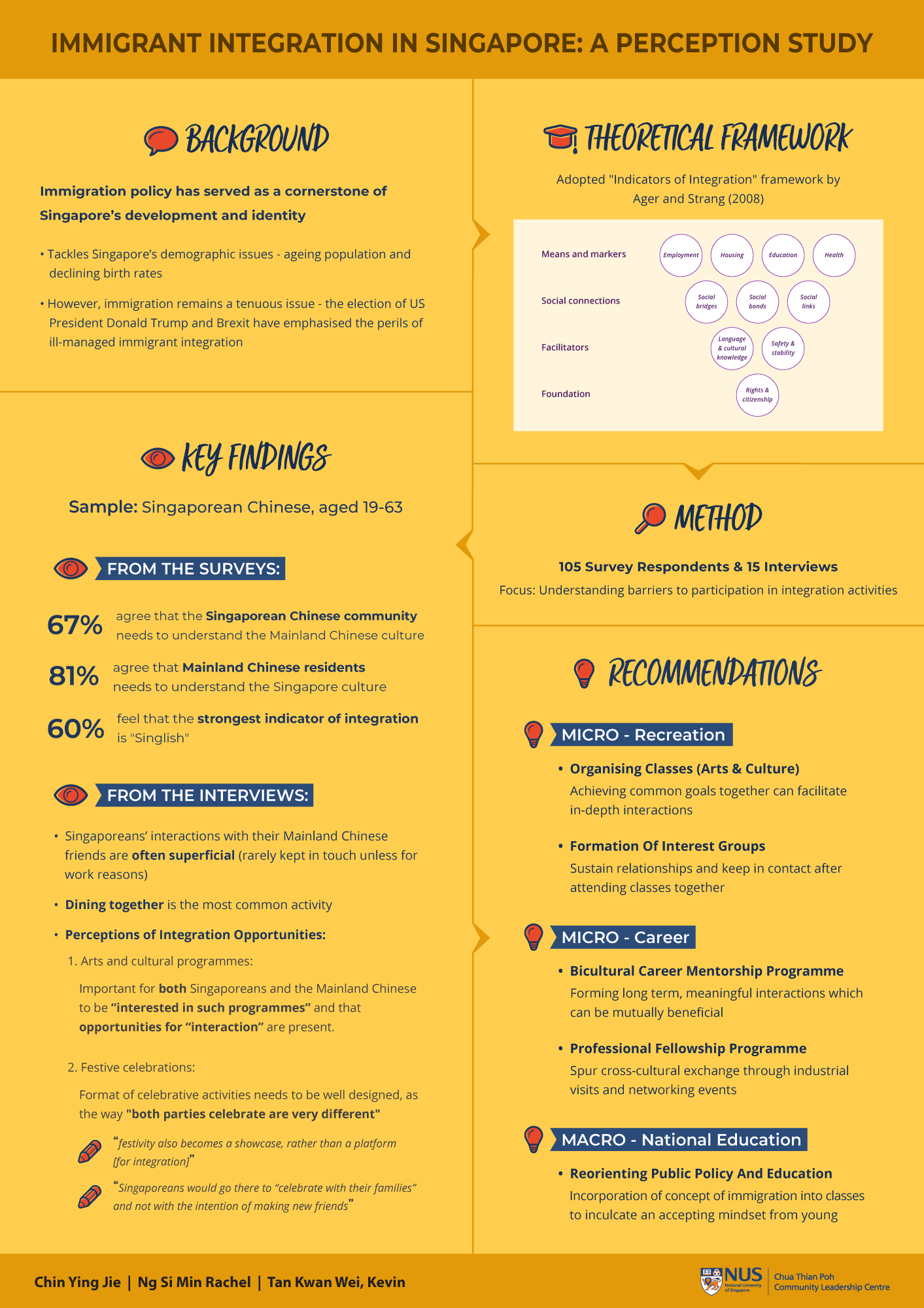Immigration Integration in Singapore: A Perception Study
By Chin Ying Jie, Ng Si Min Rachel, and Tan Kwan Wei, Kevin
Tags: Migration, Quantitative Research
Immigration policy has played a fundamental role in Singapore’s economic development. Since the 1960s, Singapore implemented a class-based migration policy to attract immigrants of varying skill levels. Today, immigration policy serves as a strategy to tackle Singapore’s demographic issues - ageing population and declining birth rates. Nonetheless, immigration remains a tenuous issue as governments have to strike a balance between fulfilling the aspirations of the domestic population whilst achieving the nation’s economic development. Hence, immigration integration plays a crucial role in fostering social cohesion and harmony.
Empirical observations suggest that there is a gap in understanding between Singaporeans and the Mainland Chinese. This exploratory study sought to gain insights on the perception and views of Singaporeans with regard to integration programmes involving new citizens hailing from Mainland China. We then distilled this understanding into several suggestions in order to improve the reception and effectiveness of current integration programmes.



